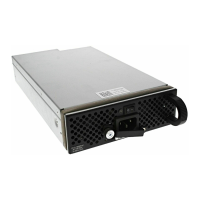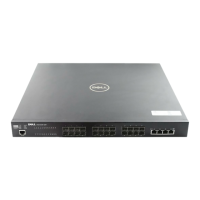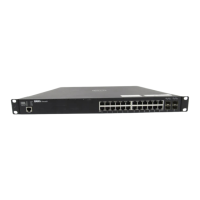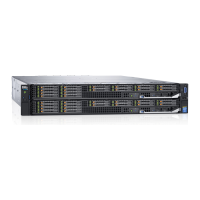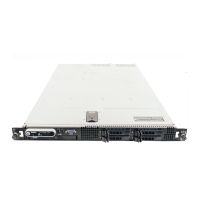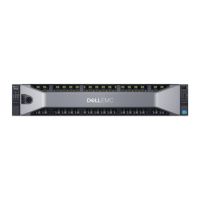428 | Open Shortest Path First (OSPFv2)
www.dell.com | support.dell.com
The show ip ospf process-id statistics command displays the error packet count received on each
interface as:
• The hello-timer remaining value for each interface
• The wait-timer remaining value for each interface
• The grace-timer remaining value for each interface
• The packet count received and transmitted for each neighbor
• Dead timer remaining value for each neighbor
• Transmit timer remaining value for each neighbor
• The LSU Q length and its highest mark for each neighbor
• The LSR Q length and its highest mark for each neighbor
Table 21-13. show ip ospf statistics process-id global Error Descriptions
Error Type Description
Intf_Down Received packets on an interface that is either down or OSPF is not enabled.
Non-Dr Received packets with a destination address of ALL_DRS even though SELF is not a
designated router
Self-Org Receive the self originated packet
Wrong_Len The received packet length is different to what was indicated in the OSPF header
Invld-Nbr LSA, LSR, LSU, and DDB are received from a peer which is not a neighbor peer
Nbr-State LSA, LSR, and LSU are received from a neighbor with stats less than the loading state
Auth-Error Simple authentication error
MD5-Error MD5 error
Cksum-Err Checksum Error
Version Version mismatch
AreaMismatch Area mismatch
Conf-Issue The received hello packet has a different hello or dead interval than the configuration
No-Buffer Buffer allocation failure
Seq-no A sequence no errors occurred during the database exchange process
Socket Socket Read/Write operation error
Q-overflow Packet(s) dropped due to queue overflow
Unknown-Pkt Received packet is not an OSPF packet
RtidZero Router-id received from the peer is 0.0.0.0.

